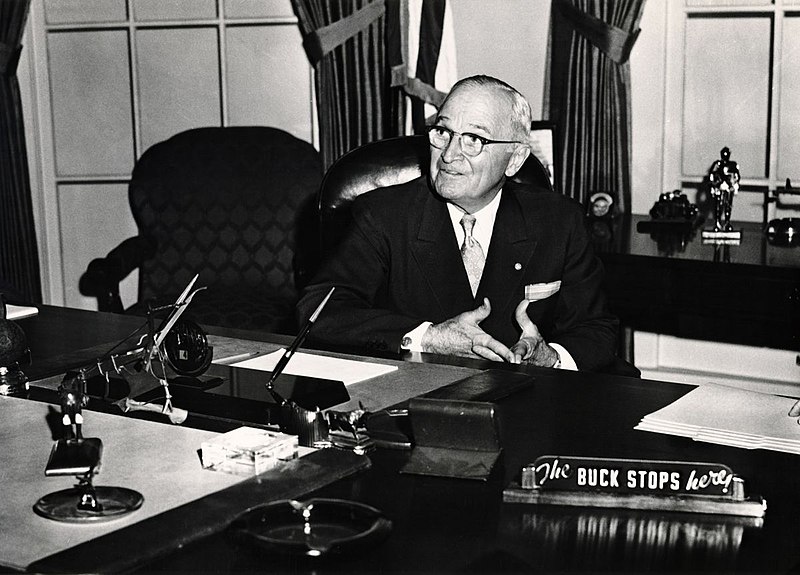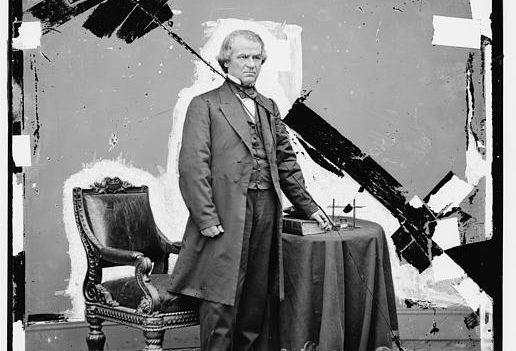FOREWORD
As a pair, we have noticed a decline in both political and historical literacy. We desire to do our part to put a stop to the misinformation and lack of education in these areas, while putting facts first.
The subject of each article in this series is determined by spinning a wheel with the names of all 45 different men who have held the Office of President, thus the headline. While our opinion on each President should not be treated as fact, our mission is to find accurate and reliable information to support our viewpoint while still presenting the views of others. We will be interviewing well-informed teachers, students, and/or anyone else in our area with compelling knowledge of our subject in order to represent a range of ideas.
Thirty presidencies ago, Andrew Johnson—the once impoverished young tailor from Greeneville, Tennessee—was placed into an impossible situation. Entering the postwar period with semi-divine stature after the surrender of Robert E. Lee, President Abraham Lincoln was struck down by John Wilkes Booth.
Thus, the fate of the ailing nation fell into the hands of the Southern Democrat turned Unionist whose temperament and character contradicted the late President in almost every way.
Born in a log cabin to a penniless, illiterate North Carolina family in 1808, Johnson fled on foot at the age of fourteen and opened a tailor shop in Greeneville, Tennessee.
It was there that he found his political voice as a local Democrat and spent nearly all of his career loyal to his party. However, when numerous Southern states began to secede in 1860, Johnson was among the most outspoken figures against it.
This impressed Abraham Lincoln, who would soon appoint him Military Governor of Tennessee and later tap him to be his Vice Presidential running mate amidst his 1864 campaign and eventual win.
But, following Lincoln’s landslide victory and the Union prevailing at Appomattox, Lincoln was suddenly assassinated by the pro-Confederate actor John Wilkes Booth, propelling the unprepared Johnson to the highest office in the nation.
Although he initially aligned himself with Lincoln’s plan for Reconstruction, he broke with the Radical Republican majorities in Congress and vetoed every single Reconstruction bill that was passed, although many were overridden.
He sought to obstruct the Freedmens’ Bureau, the 1866 Civil Rights Act, the Fourteenth Amendment, and other civil rights bills. Congress grew so opposed to Johnson that he was impeached for dismissing Secretary of War Edwin Stanton in violation of the Tenure of Office Act, and he was just one vote short of being removed from office.
As his term reached its end, and still mistrusted by Democrats, Johnson’s actions made him hated by his former Republican supporters, and he failed to even be nominated for a full term as President. He left office in deep unpopularity before returning to the Senate in 1875 and dying months later.
Johnson’s presidential legacy has been viewed almost entirely negatively, with C-SPAN’s most recent presidential historians poll ranking him as the second worst President in history, only ahead of the disgraced James Buchanan.
Many view Johnson’s presidency as a horrific mismanagement of a bruised and fractured nation, as his disputes with Congress and eventual impeachment led to further divisions throughout Reconstruction.
However, Johnson’s devotion to his country and Constitution in the face of its gravest threats brings him considerable praise.
“Johnson was a unionist first above all other things,” said government teacher Andrew Cross.
Note:
Aiden Smith was not editor-in-chief at the time of this article’s publication. Rather, he was news editor and political correspondent. At the time, Hayden Arnett was editor-in-chief.



















